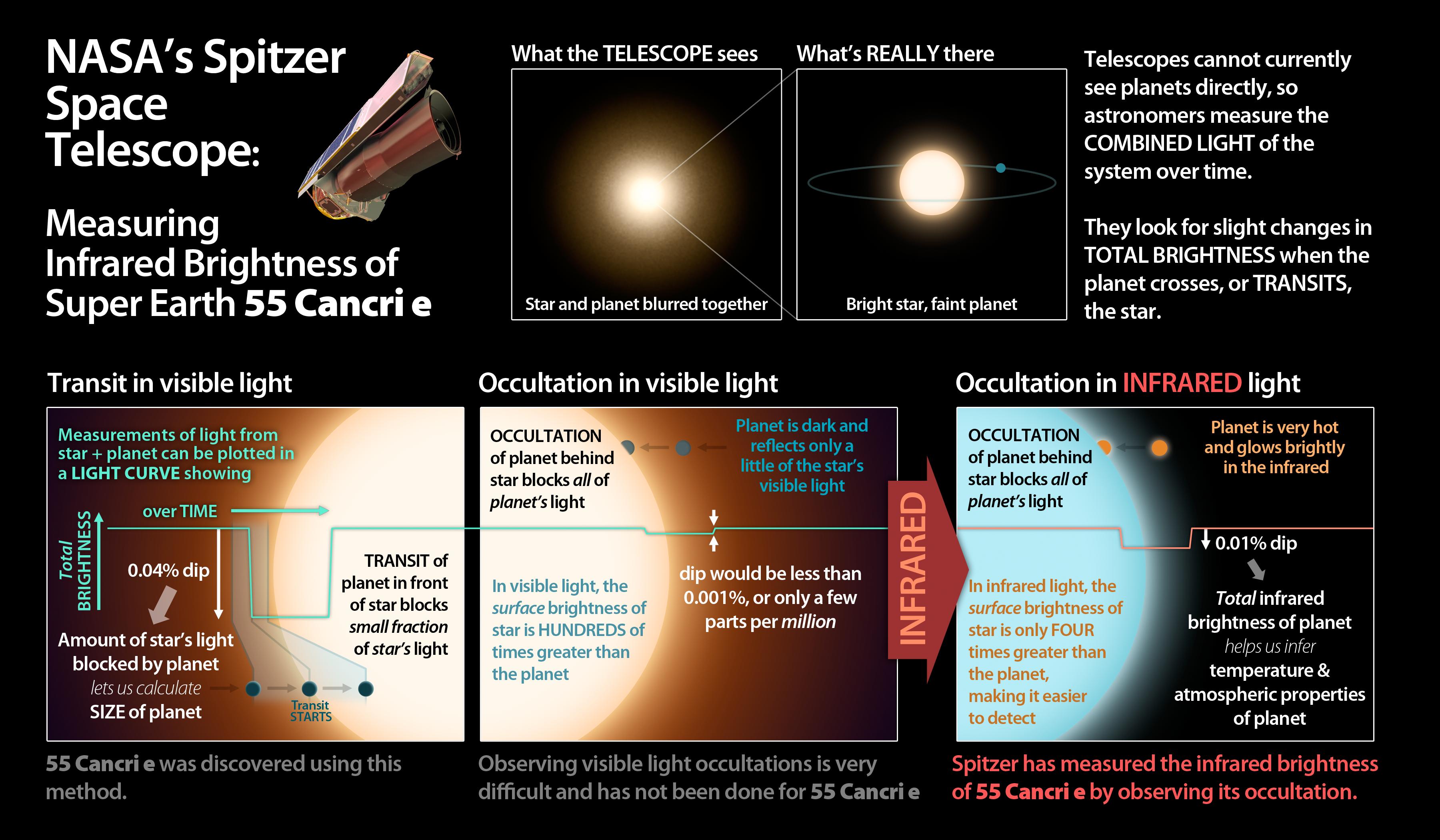
|
Measuring Brightness of Super Earth 55 Cancri e
- Click the image above for a larger view
- Full-Res JPEG (3600 x 2100) (708.5 kB)
- Full-Res TIFF (3600 x 2100) (22.7 MB)
Caption:
This graphic illuminates the process by which astronomers using NASA's Spitzer Space Telescope have, for the first time, detected the light from a super Earth planet.
The brightness of the planet was measured as the star passed behind its star (an "occultation"), causing a slight dip in the total light of the system. The occultation is much easier to detect in infrared light since the planet glows brightly due to its high temperature. Such measurements help astronomers determine conditions on the planet itself.
Background Info:
JPL manages the Spitzer Space Telescope mission for NASA's Science Mission Directorate in Washington. Science operations are conducted at the Spitzer Science Center at the California Institute of Technology (Caltech) in Pasadena. Data are archived at the Infrared Science Archive housed at the Infrared Processing and Analysis Center at Caltech. Caltech manages JPL for NASA.
For more information about Spitzer, visit:
http://www.nasa.gov/spitzer
and
http://spitzer.caltech.edu
.
Cataloging Keywords:
| Name | Value | Additional Values |
|---|---|---|
| Target | 55 Cancri | |
| System | 55 Cancri | |
| Target Type | Exoplanet | |
| Mission | Spitzer Space Telescope | |
| Instrument Host | Spitzer Space Telescope | |
| Host Type | Space Telescope | |
| Instrument | ||
| Detector | ||
| Extra Keywords | Color, Infrared, Occultation | |
| Acquisition Date | ||
| Release Date | 2012-05-08 | |
| Date in Caption | ||
| Image Credit | NASA/JPL-Caltech | |
| Source | photojournal.jpl.nasa.gov/catalog/PIA15624 | |
| Identifier | PIA15624 | |
